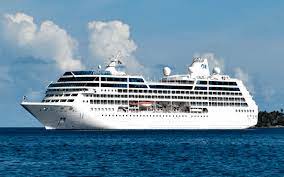
The secret language of cruise ship employees
Share
The secret language of cruise ship employees is a fascinating and ever-changing dialect that is used to communicate with one another in a variety of ways. From code words to slang terms, cruise ship workers have developed a unique way of speaking that allows them to get the job done while also maintaining a sense of camaraderie.
One of the most important aspects of the secret language of cruise ship employees is the use of code words. These words are used to alert crew members of emergencies without causing mass panic. For example, the word "oscar" is used to indicate that there is a fire on board, while the word "mayday" is used to indicate that there is a medical emergency.
In addition to code words, cruise ship employees also use a variety of slang terms to communicate with one another. These terms can be used to describe annoying guests or employees, as well as to simply add a bit of humor to the work day. For example, the term "babaloo" is often used to describe a foolish or annoying guest, while the term "mamagayo" is used to describe an employee who is lazy or shirking from their responsibilities.
The secret language of cruise ship employees is a fascinating and ever-changing dialect that is used to communicate with one another in a variety of ways. From code words to slang terms, cruise ship workers have developed a unique way of speaking that allows them to get the job done while also maintaining a sense of camaraderie.
Here are some additional details about the secret language of cruise ship employees:
- The language is constantly evolving, with new terms being added and old terms being retired.
- The language is often used to communicate with fellow crew members in a humorous or lighthearted way.
- The language can also be used to communicate with passengers, but this is not always the case.
- The language is not always understood by passengers, and some passengers may find it offensive or disrespectful.
- The language is a way for crew members to bond and create a sense of community.
- The language can also be a way for crew members to express their frustrations or dissatisfaction with their work.
